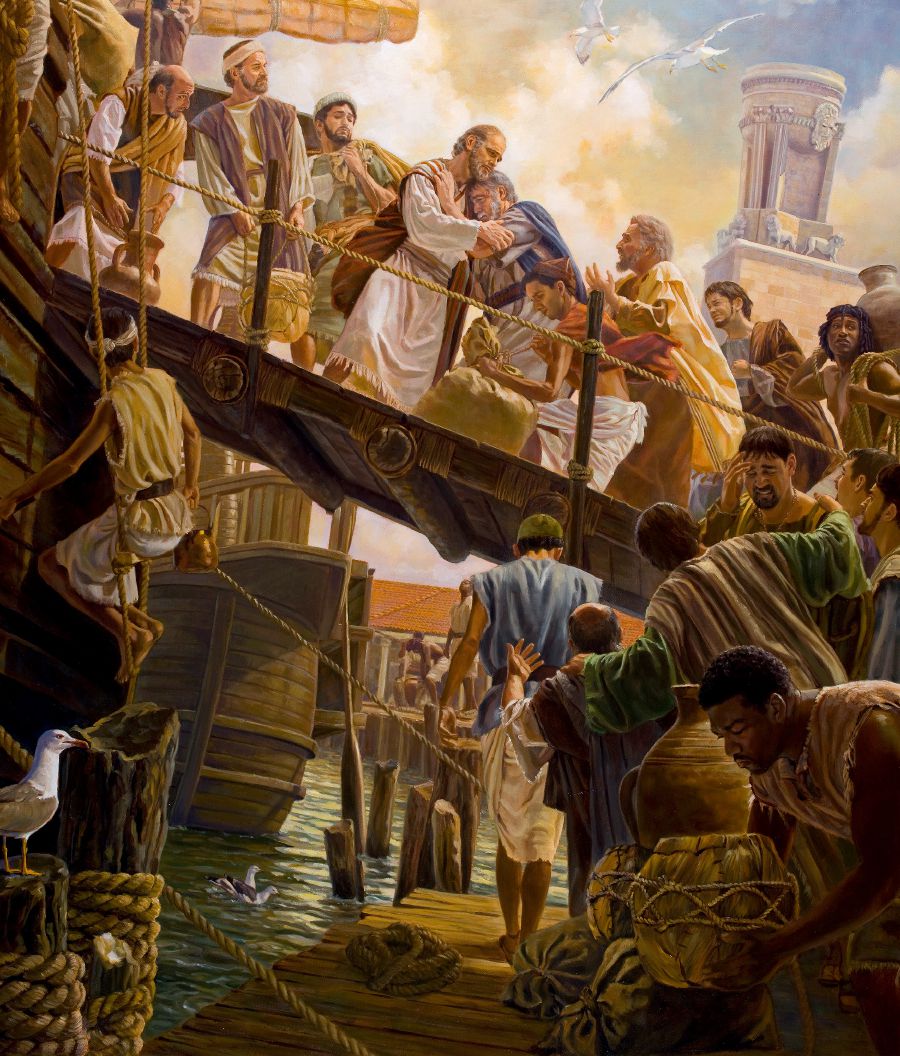Oophugh phọ aPọl aḍeenhaan bọ epẹ erugh phọ r’oromha dị odị angọ ikumor awe phọ
1-3. (a) Kaạph ipẹ emite bọ ḍughul phọ aḍiphẹ aYutikọs amhugh bọ. (b) APọl aḍighi eeghe, kụ iphẹn emite bọ itughemhị iyira eeghe ilọ aPọl?
1Bạl onhụ English
2 Bạl onhụ English
3 Bạl onhụ English
“Kụ Awilẹ Bidị Aghị Masidonia” (Iiḍighi 20:1, 2)
4. Ḍighẹn aḍigbagarạ adọl kụ edị aPọl asoman?
4 Bạl onhụ English
5, 6. (a) Ika asiạ aPọl arọl bọ epẹ Masidonia, kụ eeghe kụ edị odị aḍighinhaan bumor phọ epẹ phọ? (b) APọl amhiịn ika bumor r’abumaranhi phọ odị?
5 Bạl onhụ English
6 Bạl onhụ English
7. Ika kụ idị abupoghom rodon rotuughaạny ghan eḍeenhaan phọ aPọl?
7 Bạl onhụ English
“Roosophoghian Ni Nyinọ” (Iiḍighi 20:3, 4)
8, 9. (a) Uḍighi ika kụ aPọl anme bọ olhoghi odị ilọ oghị aSiria? (b) Eeghe kụ iḍighi kụ abuọ aJu phọ oghaghạm bọ olhoghi Pọl?
8 Bạl onhụ English
9 Bạl onhụ English
10. Ebeeph ni iduọn aPọl u/kị bọ Kenkria ḍughụm? Gbạ.
10 Bạl onhụ English
11. Eeghe kụ idị aKristẹn rodon roḍighi ghan oghoph asighuḍum abidị, kụ eeghe eḍeenhaan kụ edị aZizọs aphighi ilọ iphẹn phọ?
11 Bạl onhụ English
Uudereghị Ni Bidị Eten Dị Ebụgh Iboom (Iiḍighi 20:5-12)
12, 13. (a) Ookpomhoghan phọ ulhoghoma ika mem mọ aPọl aḅeton bọ Yutikọs? (b) Eeghe oḍuom olhoghi dị aBaibul phọ angọ kụ raadereghị ghan we dị oroph buọ ephomhoghiạn abidị esi aḍuugh?
12 Bạl onhụ English
13 Bạl onhụ English
“Esi Ogbo, R’oḍuạ Ghan Otu Ogbạ Otu” (Iiḍighi 20:13-24)
14. APọl aḅenhị eeghe ikumor awe phọ Efesọs mem mọ oghị bọ oteẹny nyodị epẹ MaiIitos?
14 Bạl onhụ English
15. Eeghe kụ iḍighi kụ oḍighi oḍuạ otu ogbạ otu phọ anhighẹ bọ?
15 Bạl onhụ English
16, 17. Ika kụ idị aPọl aḍeenhaan mọ onọ amoọgh ni akpọ oḅio, kụ ika kụ idị aKristẹn rodon rotuughaạny eḍeenhaan phọ odị?
16 Bạl onhụ English
17 Bạl onhụ English
“Igona Loor Anyina R’esi Oomo Aḍita Phọ” (Iiḍighi 20:25-38)
18. APọl aḍighi eeghe pidị iḅaạl oye ke/tọl emhụ odị, kụ ika kụ idị ikumor awe phọ Efesọs koḍighi aani iginha phọ?
18 Bạl onhụ English
19. Ika kụ idị itughemhị dị egbạgh ipẹ aKraist emhiigh oḍigh ipạ ookpomhoghan phọ siphẹ eekunha oḅẹl okuron asiạ phọ, kụ esighẹ rekị irorori engọ eeghe?
19 Bạl onhụ English
20, 21. Ika kụ idị aPọl aḍeenhaan uwaloor osighẹ aloor opighironhọm ekiạ, kụ ika kụ idị ikumor awe ookpomhoghan phọ rodon roḍighi aani ghan iginha phọ?
20 Bạl onhụ English
21 Bạl onhụ English

“Quite a bit of weeping broke out among them all.”—Acts 20:37
22. Uḍighi ika kụ aPọl aḅeraạn bọ ikumor awe phọ Efesọs?
22 Bạl onhụ English